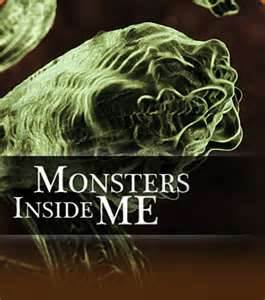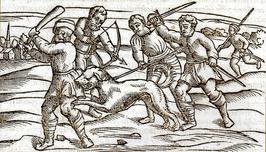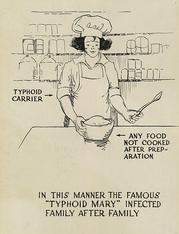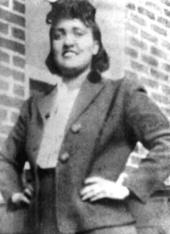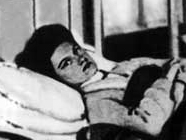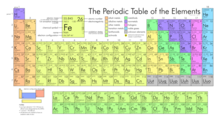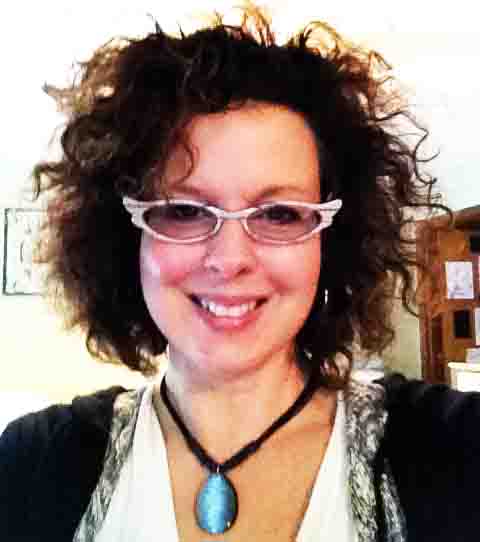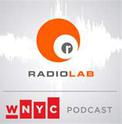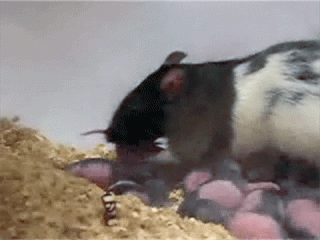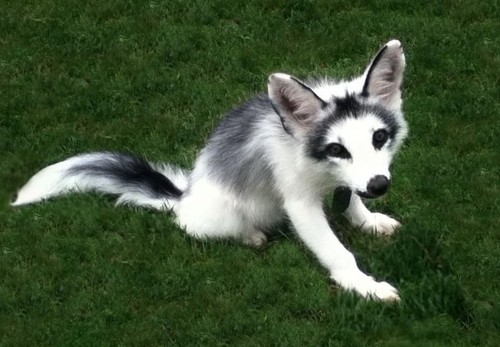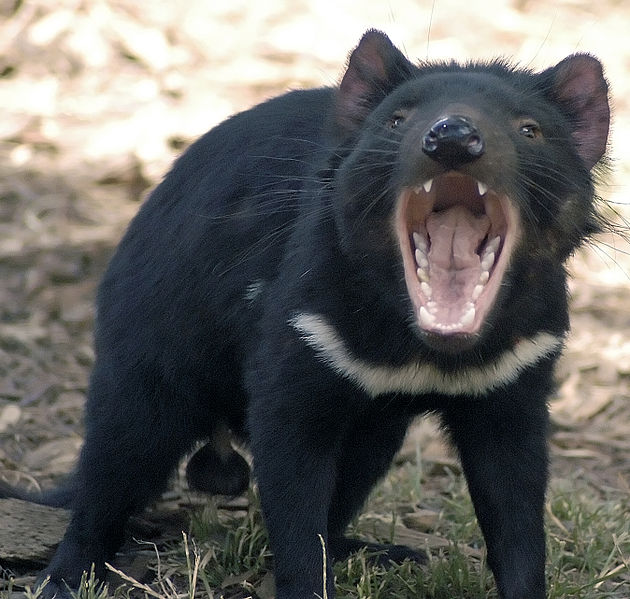 | ||||
Science Homework Assignments
Based on Radiolab Episodes
from Science Prof Online
 | ||||||
RadioLab Homework Assignments
Make Science Lessons Memorable with Radiolab!
Page last updated 5/2016
SPO VIRTUAL CLASSROOMS
Radiolab is an outstanding radio show broadcast out of New York City on WNYC. The team that creates each episode, including hosts Jad Abumrad and Robert Krulwich, are master storytellers. On the Radiolab website they define the show as follows:
"Radiolab is a show about curiosity. Where sound illuminates ideas, and the boundaries blur between science, philosophy, and human experience."
As a college biology instructor, I have found Radiolab episodes to be extremely effective teaching tools. Students enjoy, remember and learn valuable information from these smart and engaging podcasts.
TV show, from Animal Planet, presenting case studies of people with parasitic infections. So interesting, you'll learn about parasitism without even trying!
Check out our FREE
Monsters Inside Me
Homework Assignments
Episode describes the disease, the history of rabies treatment, details Jenna’s story and discusses the efficacy of the Milwaukee Protocol.
Teaching opportunities for this episode: viruses, infectious disease, history of rabies, treatment of rabies, medical ethics
- Listen to the "Rodney Versus Death" Radiolab Episode
- Download the Rodney Versus Death Homework Assignment
RODNEY VS DEATH
Jeanna Giese checked into the Children's Hospital of Wisconsin in 2004 with symptoms of rabies, a disease historically 100% fatal, once symptoms manifest. Her doctor, Rodney Willoughby, invented a new treatment, now known as the Milwaukee Protocol, and his patient lived!
PATIENT ZERO
Episode begins with the story of perhaps the most iconic Patient Zero of all time: Typhoid Mary, then unfolds a molecular detective story to pinpoint the true beginning of the AIDS epidemic.
Teaching opportunities for this episode: epidemiology, ethics, typhoid, history of HIV, tracing HIV lineages through genetics
PARASITES
Episode Summary: Are parasites always foes of the host they infect? In this episode Radiolab tells the fascinating story of several different types of parasites including hookworms, parasitic wasps, flukes and protozoans, and asks listeners, “Are parasites ‘degenerates’ or some of evolution’s craftiest forms of life?”
Teaching opportunities for this episode: parasite ecology, microbiology, challenge student perception of parasites, hookworm, toxoplasmosis.
INHERITANCE
Explore the entangled roles of nature and nurture in gene expression. Stories include how suffering famine during puberty resulted in some Swedish grandfathers having healthier grandsons, and how the nurturing behavior of rat mothers can “tickle the genes” of rat pups.
Teaching opportunities for this episode: genetics, gene expression, epigenetics, interaction of nature & nurture
- Listen to "Inheritance" Radiolab Episode
- Download the Inheritance Homework Assignment
These homework assignments are not a product of the Radiolab program nor are they endorsed by the program. These assignments were developed by Tami Port, MS, as a college biology teaching tool.
HENRIETTA'S TUMOR
Henrietta Lacks died of cervical cancer in 1951, but her tumor cells, now called HeLa, continue to grow and contribute to advancements in medical science. This episode explores who Henrietta was and how her children learned that part of their mother is still alive.
Teaching opportunities for this episode:
HeLa cells, mitosis, cancer, medical ethics, cell biology research
- Listen to "Henrietta's Tumor" Radiolab Episode
- Watch "The Gift of Life" Good Morning America segment on the Henrietta Lack story.
- Download the Henrietta's Tumor Homework Assignment
Below you can find links to the Radiolab episodes and the free homework assignments associated with them.
You have FREE access to a large collection of materials used in a college-level introductory Cell Biology Course. The Virtual Cell Biology Classroom provides a wide range of FREE educational resources including Power Point Lectures, Study Guides, Review Questions and Practice Test Questions.
of Science Prof Online
You have access to a large collection of free science teaching materials used in high school and college-level introductory science courses. The SPO Instructors Corner has resources for teaching general science, anatomy & physiology, chemistry, cell biology genetics, immunology and microbiology.
Thank you Radiolab for producing a fun, engaging, smart show that helps my students love to learn!
 | ||||||
SPO is a FREE science education website. Donations are key in helping us provide this resource with fewer ads.
Please help!
(This donation link uses PayPal on a secure connection.)
 | ||||
STUDENTS LOVE RADIOLAB!
Students learn from and remember these smart, entertaining podcasts.
See this semester's pick of Student Love Letters to Radiolab!
CRISPR
Episode Summary: CRISPR is a method of genetic engineering that is rewriting the way we change DNA. Scientists may someday be able to use CRISPR to fight cancer and even resurrect extinct animals. This episode explores how CRISPR works, and considers whether we should be worried since scientists have now used this biotechnology to tweak the genes of human embryos.
Teaching opportunities for this episode: genetic engineering, bioethics
Rat mother licking her babies and "tickling" their epigenetics. Video by Dr. Francis Champagne and used with permission.
YELLOW FLUFF AND OTHER CURIOUS ENCOUNTERS
Episode based on the curious characters called scientists and their quest for knowledge. What's in Oliver Sacks' fine wooden box? What did Jerry Coyne feed his pet maggot? What the heck are scientists thinking, anyways?
DARWINVAGANZA!
Learn about the experiments done and observations made by Charles Darwin during the 20+ years he spent 'shoring up' and struggling with the implications of his theory of natural selection before publishing. Teaching opportunities for this episode: Charles Darwin, natural selection, evolution, true love
- Listen to "Darwinvaganza" Radiolab Episode
- Download the Darwinvaganza Homework Assignment
Teaching opportunities for this episode: scientific curiosity, excellent introduction to the periodic table, plus parabolas and parasites
- Listen to "Yellow Fluff and Other Curious Encounters" Radiolab Episode
- Download Yellow Fluff Homework Assignment
SCIENCE VIDEOS
New! NEW NICE
Episode Summary: Podcast examines artificial selection through the taming of Russian foxes, as well as domestication of the human race! This is the first SPO Radiolab assignment to also have an associated PowerPoint, featuring photos that follow the story line. Timing for advancing the slides is in the notes section of the PowerPoint.
Teaching opportunities for this episode: evolution, artificial selection, research on evolution.
You have FREE access to a large collection of materials used in a college-level introductory biology course. The Virtual Biology Classroom provides a wide range of free educational resources including PowerPoint Lectures, Study Guides, Review Questions & Practice Test Questions.
Russian domesticated
silver fox.
New! DEVIL TUMORS
Episode Summary: Episode explores the bizarre, contagious cancer (Devil Facial Tumor Disease - DFTD) wiping out Tasmanian Devils. There is also a PowerPoint summarizing the devil's plight and current conservation efforts.
Teaching opportunities for this episode: cancer, transmissible tumors, animal behavior, conservation.
You have free access to a large collection of materials used in two college-level introductory microbiology courses (8-week & 16-week). The Virtual Microbiology Classroom provides a wide range of free educational resources including PowerPoint Lectures, Study Guides, Review Questions and Practice Test Questions.

